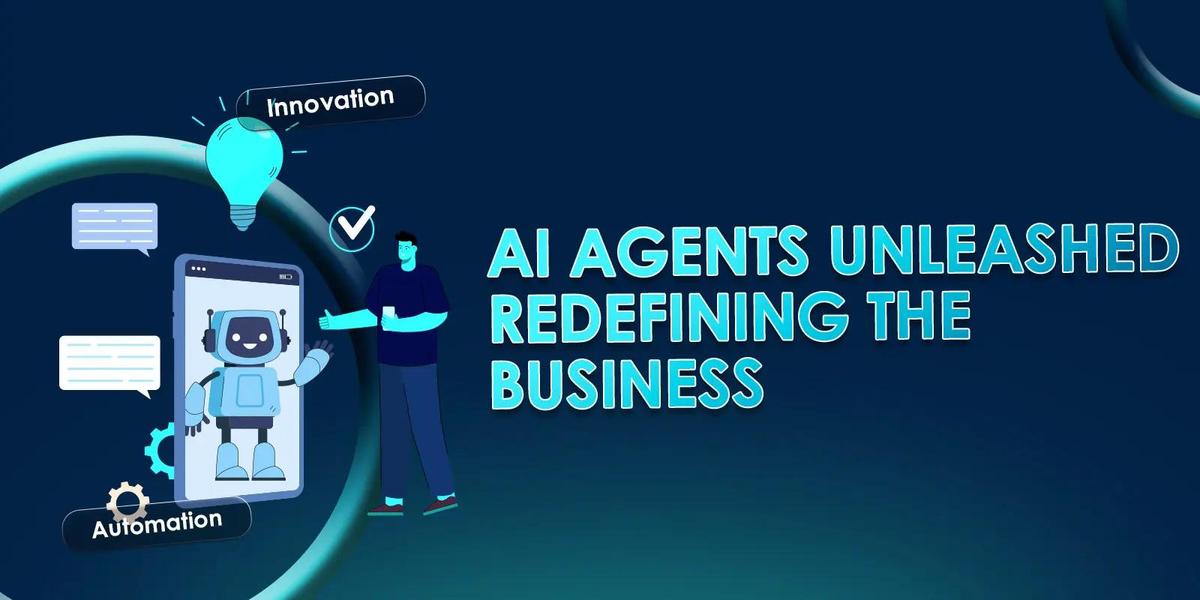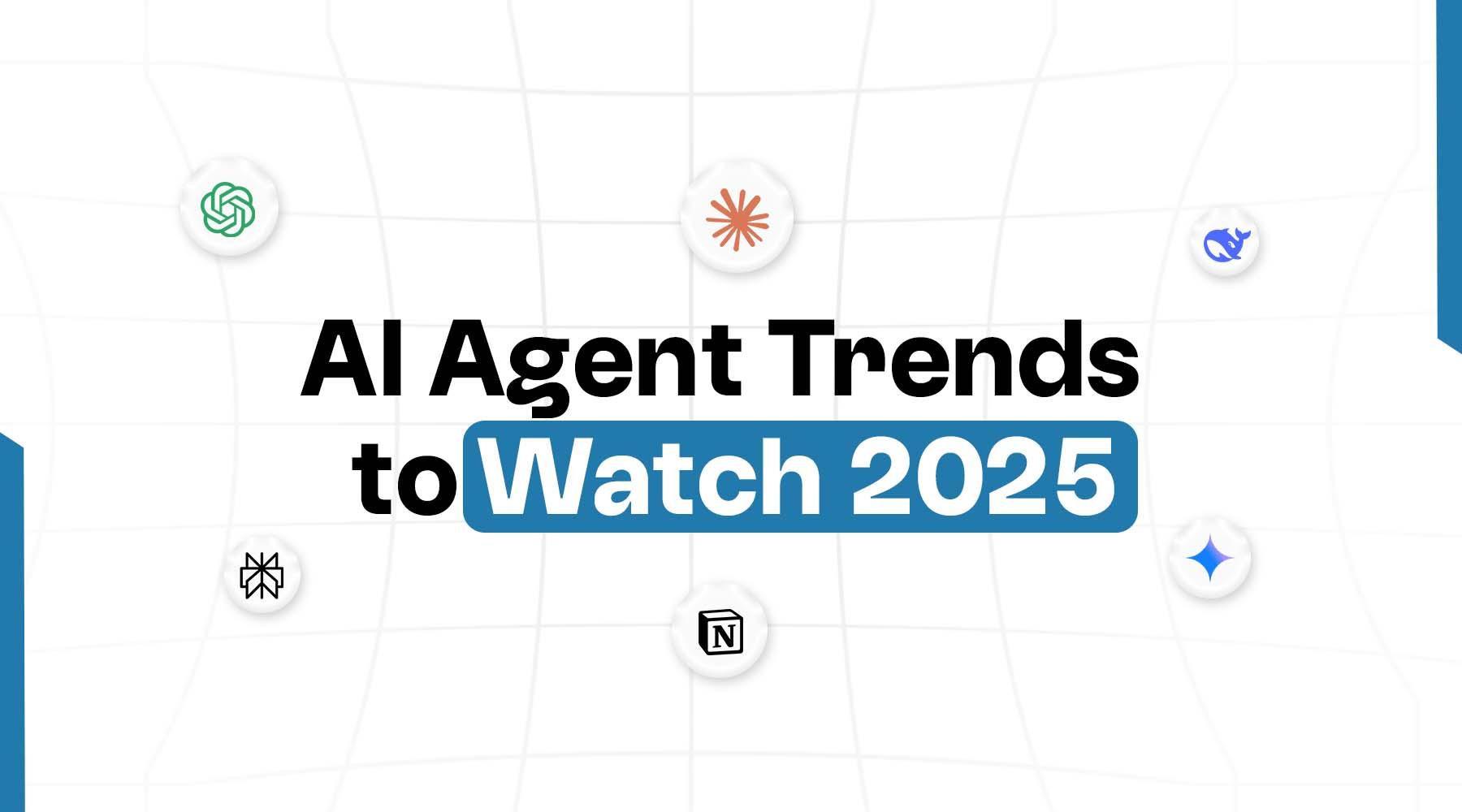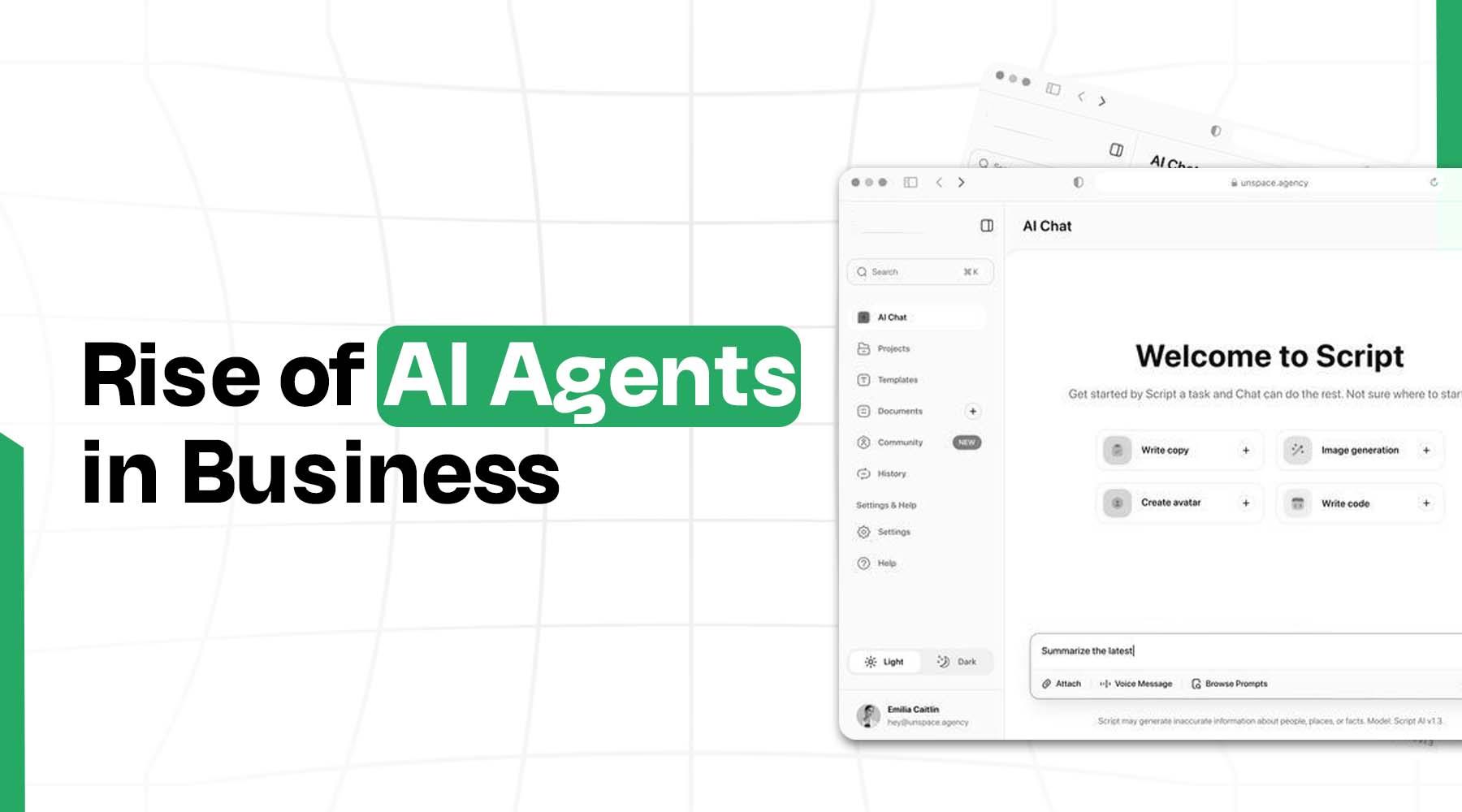AI Agents Trends To Watch For In 2025
Salman Siddiqui
Founder and CEO of impleko

AI Agents Trends To Watch For In 2025
If you have been following the tech industry, you are aware of the growing significance of AI agents. But what exactly are they, and why should you care about the trends shaping their future?
In this article, we’ll discuss the 2025 trends and how these advancements could impact various industries.
What are AI Agents?
At its core, an AI agent is a software program that can perform tasks or make decisions on behalf of a user. Think of them as your digital assistants, capable of learning from interactions and improving over time. They can analyze data, recognize patterns, and predict outcomes based on past behavior.
Types of AI Agents
There are several types of AI agents, including:
- Reactive Agents
These respond to specific stimuli without any memory of past interactions.
Deliberative Agents
These have a more complex understanding of their environment and can plan actions based on goals.
Learning Agents
These improve their performance over time by learning from experiences.
The Rise of AI Agents in Various Industries
Let’s look closer at where they’re making the most impact.
Healthcare
The potential is enormous, from virtual health assistants that remind patients to take their medications to AI-driven diagnostic tools that analyze medical images.
Finance
In finance, AI agents streamline processes like fraud detection and risk assessment. They can analyze vast amounts of data in real time, helping institutions make informed decisions quickly.
Customer Service
Customer service is another area where AI agents shine. Chatbots are now commonplace, providing instant responses to customer inquiries and freeing up human agents for more complex issues.
Education
In education, AI agents are personalizing learning experiences. They can adapt to individual student needs and provide tailored resources and support to enhance learning outcomes.
Key Trends in AI Agents for 2025
As we look ahead to 2025, several key trends are emerging in AI agents. Here’s what you should keep an eye on.
Increased Personalization
One of the most exciting trends is the move towards increased personalization. AI agents will become even better at understanding individual preferences and behaviors, allowing for tailored experiences that feel more human.
Enhanced Natural Language Processing
Natural Language Processing is poised to take a giant leap forward. AI agents will be able to more accurately understand and respond to human language, making interactions smoother and more intuitive.
Integration with IoT Devices
As the Internet of Things (IoT) grows, AI agents will increasingly integrate with smart devices. Imagine your AI assistant simultaneously controlling your home’s lighting, temperature, and security systems!
Ethical AI Development
With great power comes great responsibility. As AI agents become more prevalent, there will be a stronger focus on ethical AI development. This includes ensuring transparency, fairness, and accountability in AI systems.
The Role of Machine Learning in AI Agents
Machine learning is the backbone of many AI agents. It allows them to learn from data and improve their performance over time. For instance, an AI agent in customer service can analyze past interactions to provide better responses in the future.
Examples of Machine Learning Applications
Some practical applications of machine learning in AI agents include:
Recommendation Systems:
Think Netflix or Amazon, where AI suggests content or products based on your preferences.
Fraud Detection:
Financial institutions use machine learning to identify unusual patterns that may indicate fraudulent activity.
AI Agents and Automation
Automation is a hot topic, and AI agents are at the forefront of this discussion. While they can increase efficiency, there are concerns about job displacement.
However, it’s essential to remember that AI agents can create new job opportunities in tech and support roles.
Balancing Automation and Human Touch
Finding the right balance between automation and human interaction is crucial. While AI agents can handle routine tasks, the human touch is irreplaceable in areas like empathy and complex problem-solving.
Chatbots and Virtual Assistants
Chatbots and virtual assistants are becoming increasingly sophisticated. They can handle many customer inquiries, providing instant support and freeing up human agents for more complex issues.
Predictive Analytics for Customer Insights
AI agents can analyze customer data to predict future behavior. This allows businesses to tailor their marketing strategies and improve customer satisfaction.
Future of AI Agents
Looking beyond 2025, we can expect AI agents to become even more integrated into our daily lives.
However, challenges remain. As AI agents continue to evolve, issues like data privacy, ethical considerations, and the need for regulatory frameworks will need to be addressed.
In conclusion, the world of AI agents is rapidly changing, and 2024 promises to bring exciting developments. These trends will influence technology use, from more personalization to improved natural language processing and ethical considerations.
Your most common questions—answered!
Got questions? We’re here with every answer you need!!
Explore these quick answers to help you better understand our solutions and how they work.


